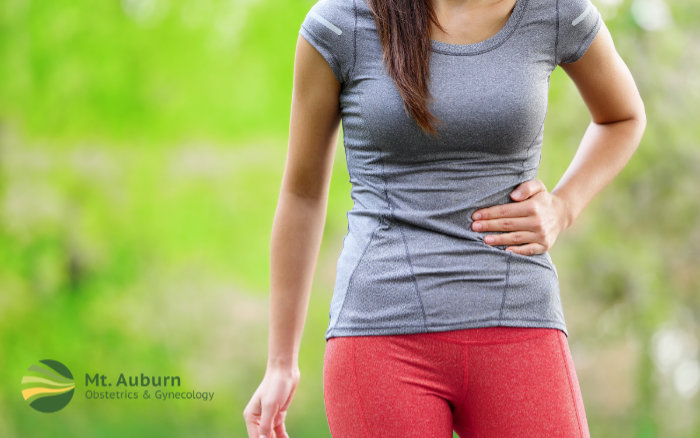When the summer months come around, we like to think of outdoor fun, time off, and vacations—but for some people, summer signals worse periods and PMS.
So, is it true that PMS is worse in the summer? Let’s find out.
What is PMS?
PMS stands for premenstrual syndrome, and anyone who gets their period knows that PMS is an experience we could live without.
However, most people who menstruate experience symptoms of PMS, which include:
- tender breasts
- mood swings
- cravings and appetite changes
- fatigue
- irritability
- depression
- anxiety
- insomnia
- brain fog
- increased sex drive
- headaches
- fluid retention
- acne flare-ups
- constipation or diarrhea
The symptoms of PMS may seem far-reaching. That’s because PMS is the result of changing hormones. Hormones play an important role in nearly every function of the human body, so when something changes, you feel it.
Do PMS symptoms change with the season?
Frankly speaking, the seasons do not change your periods, but you may notice certain changes and patterns that seem to ebb and flow with the changing seasons. Why?
There are several things that can change your period, which often coincide with summer months, including:
- drastic temperature changes, whether it’s a vacation to a tropical island or a sudden heat wave
- increased exposure to sunlight, especially overexposure
- dehydration and increased sweating
- yeast infections, which are more common in hot and humid conditions
- changes in diet, especially increased consumption of fruit or processed foods
- changes in stress levels and daily routines
- changes in exercise and sleeping habits
These lifestyle changes have a major impact on—you guessed it—your hormones, which in turn affect your experience of PMS and your periods.
Why your period might feel worse during summer months
When you consider how sensitive your body is to environmental changes, it makes sense that the heat, stress, and other changes of the summer months make it feel like your PMS is worse in the summer.
Changes in cycle length
It’s normal for people with regular periods to experience cycles that vary in length by 1-2 days, and it’s also common for people in the summer to report shorter cycle lengths (the 28 or so days from the start of your last period to the start of your next one). This means you may experience your period slightly more often during the summer.
Dehydration makes PMS worse
You need to drink more water in the summer to stay hydrated because of increased temperatures and activity. Dehydration can exacerbate various PMS symptoms, including:
- bloating
- headaches
- cramps
- fatigue
Eating salty foods, especially dry snacks like chips or processed meats like bacon, can worsen dehydration and symptoms of PMS.
Mood changes from your environment
Managing your period in the summer can be more difficult than during other seasons, especially if you have more time but less energy for fun activities or struggle to manage your period products at the pool or beach.
If pads and tampons are your period products of choice, swimming can even go from fun to uncomfortable. And missing out on things because of your period can put you in a bad mood, making your mood swings feel even worse.
Changes in habits
Regular routines help regulate your hormones. Shorter nights can mean less sleep. Summer vacations can disturb your carefully cultivated habits. And if you’re attending or working at a school or university, summer breaks can even completely destroy your established routines.
Changes in sleep, exercise, eating habits, and daily activities can disrupt your hormonal balance and make PMS symptoms feel worse.
Hot and humid environments are a breeding ground for infections
Yeast loves warm, moist environments—and that description accurately describes a healthy vagina. That’s why even healthy people with vaginas may experience a yeast infection every now and then.
Hot and humid summers increase your risk of infection, especially if you find yourself wearing a wet bathing suit or sweaty clothes for extended periods of time.
Vaginal infections can worsen PMS symptoms, and they’re just plain uncomfortable. So, avoid this altogether by wearing clean, dry cotton underwear, avoiding fragrances and scented soaps down there, and enjoying a healthy, well-balanced diet.
Tips for relieving PMS
The good news is that there are several things you can do to relieve your PMS in the summer. Taking extra precautions during the summer to limit your discomfort can improve your physical and mental health.
Here are some tips for relieving PMS during the summer and any other month:
- drink more water
- avoid highly processed and salty foods
- wear loose cotton underwear
- maintain personal hygiene, changing pads, tampons, cups, and underwear often
- eat a balanced diet with plenty of fiber, whole grains, non-starchy vegetables, and healthy proteins
- exercise regularly (30 minutes a day or more)
- maintain a regular sleep schedule
- practice stress management techniques such as yoga and meditation
Don’t let summer PMS get you down
While it may be true that your PMS is worse during the summer, you can take steps to improve your symptoms to negate these effects.
If you don’t want PMS to get in the way of you enjoying your summer, make an effort to establish a healthy routine that includes a balanced diet, regular exercise, quality sleep, and good hygiene.
If your PMS feels extreme or you think you may suffer from PMDD, a condition that causes severe PMS, contact your primary care physician or your OBGYN.
